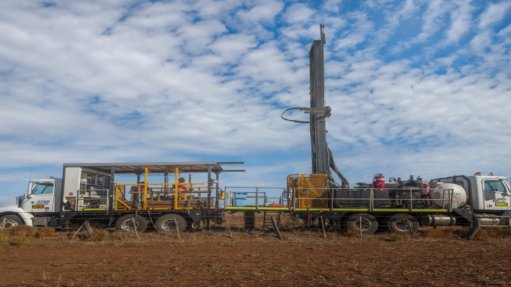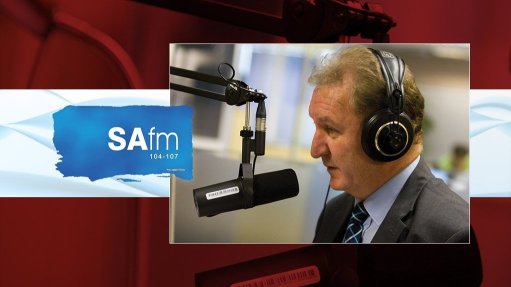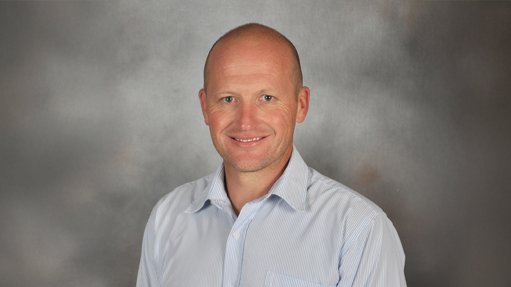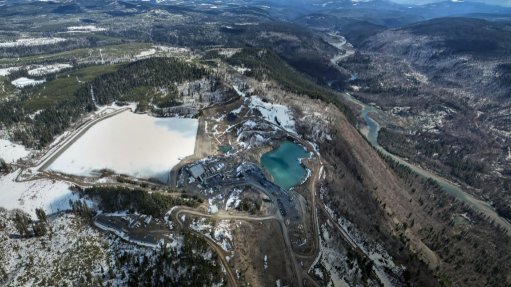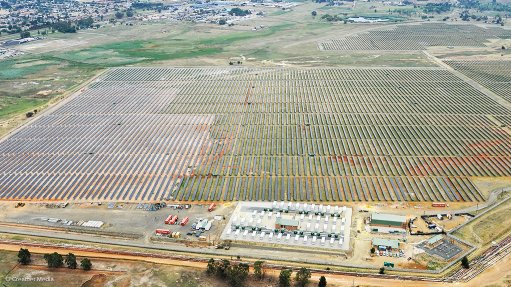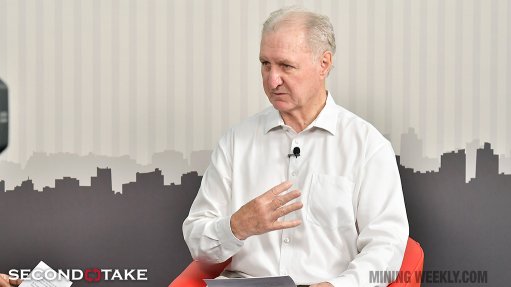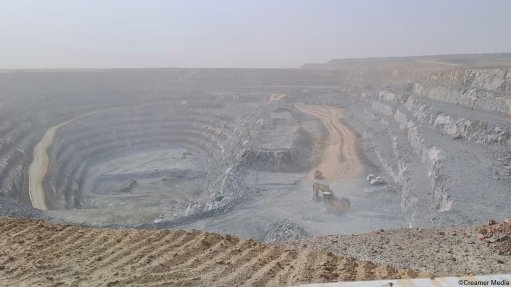New border agency should have own budget – Defence Minister
South Africa’s soon-to-be-created Border Management Authority (BMA) will “hopefully” be funded by a new budget line, Defence and Military Veterans Minister Nosiviwe Mapisa-Nqakula told Engineering News on the fringes of the recent Homeland Security Conference 2017, in Pretoria. “It shouldn’t take money away from the Defence Force – it shouldn’t take money away from any government agency. The National Treasury will have to provide [the] money.”
Government recognised the importance of securing the country’s borders. “The BMA should have taken off yesterday,” she said. (The creation of the BMA has been approved by the Cabinet and it now just awaits the President’s signature on the proclamation to be created.) “It should be – within three years, we’ll see baby steps and, within five years. we’ll see a fully fledged BMA.”
She explained that the BMA would be located within the Department of Home Affairs. “It will provide better coordination and cooperation in border management and control and in utilising the legal resources we have in the country.” It will eliminate duplication of efforts. “The BMA will be responsible for the management of the border, of people, of goods,” she clarified. “It does not take away from the mandate of the SANDF (South African National Defence Force).” The SANDF will remain deployed on the border and remains responsible for defending the country’s sovereignty and territorial integrity.
The BMA will coordinate the activities of the SANDF, customs, immigration and the South African Police Service. It will have a dedicated core staff, perhaps recruited directly or transferred from other, existing, agencies, and possibly some personnel seconded from other agencies. The plan for setting up the BMA is currently being developed.
In her keynote address to the conference, Mapisa-Nqakula pointed out that the creation of the BMA had been a long process, extending over nine or ten years. She noted that the reasons for the creation of the BMA were still not widely understood and gave the assurance that it was not a plan to “outsource” border security. “In South Africa, we should not believe we are an island,” she pointed out. The country was part of the global community, and terrorism could occur here.
“We’ve got [SANDF] boots on the ground,” she highlighted. “But we know, all of us, we do not have enough [troops] to deploy on the entire borderline of South Africa. We’re going to need technologies, sensors.
“We need to ensure our technologies are in line with our challenges,” she affirmed. “I am happy that the industry and allied partners are with us [at the conference] today . . . ensuring the use of indigenous technology and expertise in setting up the BMA. There is a lot of IP (intellectual property) in this country . . . Our defence industry . . . needs to rise to the challenge.” The IP was found in both the public and private sectors and had to be maintained and enhanced.
In his address to the conference, Armscor CEO Kevin Wakeford highlighted that it marked the first time that the defence and security industries were “sitting together”. He asserted that the two sectors needed to work together. “We’ve got to start talking to each other.” Further, both these sectors, on the one side, and government, on the other, also needed to work together. There was a need, he said, to develop a national system to combat various threats, including organised crime. “We’re trying to coagulate and develop some cohesion around our readiness . . . as a country and a continent,” he affirmed. “It is time we started talking seriously about our national security.
”“We want an indigenous solution, or a hybridised solution” to meet the country’s security needs, stressed Wakeford. A hybridised solution would involve a mixture of local technologies and overseas technologies adapted to local conditions. South Africa did not need a 100%-imported solution. “[South Africa] has invested a lot of money over many years in [developing] the best, world-class technologies. It’s time to roll up our sleeves.”
Article Enquiry
Email Article
Save Article
Feedback
To advertise email advertising@creamermedia.co.za or click here
Announcements
What's On
Subscribe to improve your user experience...
Option 1 (equivalent of R125 a month):
Receive a weekly copy of Creamer Media's Engineering News & Mining Weekly magazine
(print copy for those in South Africa and e-magazine for those outside of South Africa)
Receive daily email newsletters
Access to full search results
Access archive of magazine back copies
Access to Projects in Progress
Access to ONE Research Report of your choice in PDF format
Option 2 (equivalent of R375 a month):
All benefits from Option 1
PLUS
Access to Creamer Media's Research Channel Africa for ALL Research Reports, in PDF format, on various industrial and mining sectors
including Electricity; Water; Energy Transition; Hydrogen; Roads, Rail and Ports; Coal; Gold; Platinum; Battery Metals; etc.
Already a subscriber?
Forgotten your password?
Receive weekly copy of Creamer Media's Engineering News & Mining Weekly magazine (print copy for those in South Africa and e-magazine for those outside of South Africa)
➕
Recieve daily email newsletters
➕
Access to full search results
➕
Access archive of magazine back copies
➕
Access to Projects in Progress
➕
Access to ONE Research Report of your choice in PDF format
RESEARCH CHANNEL AFRICA
R4500 (equivalent of R375 a month)
SUBSCRIBEAll benefits from Option 1
➕
Access to Creamer Media's Research Channel Africa for ALL Research Reports on various industrial and mining sectors, in PDF format, including on:
Electricity
➕
Water
➕
Energy Transition
➕
Hydrogen
➕
Roads, Rail and Ports
➕
Coal
➕
Gold
➕
Platinum
➕
Battery Metals
➕
etc.
Receive all benefits from Option 1 or Option 2 delivered to numerous people at your company
➕
Multiple User names and Passwords for simultaneous log-ins
➕
Intranet integration access to all in your organisation






